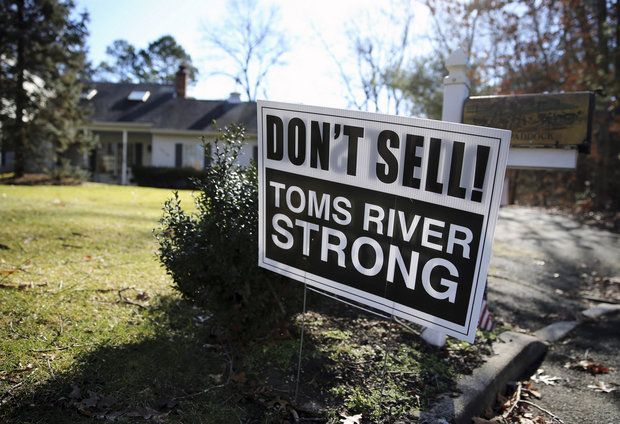Toms River officials voted Tuesday night to enter into a consent order with the federal Department of Justice to settle a complaint over the township’s zoning ordinance, which was modified in 2017 to require a 10-acre space for houses of worship.
In a 6-1 vote, the council agreed to end the dispute with the federal government in lieu of fighting the zoning challenge in court, which officials say could have cost millions of dollars. The settlement brings Toms River into compliance with the controversial Religious Land Use and Institutionalized Persons Act, which places restraints on cities on the regulation of properties that are proposed to be used for religious purposes.
The order will restore the zoning regulations that prevailed in the decades prior to 2017, under which houses of worship were permitted as conditional uses in the nine – out of the township’s 57 – zoning districts referenced in the consent order on a minimum lot-size of two acres, while also allowing smaller-site houses of worship to locate on middle-order roadways on a limited basis. The DOJ sued Toms River because of the “jump” from two to 10 acres in the minimum lot size requirement that was adopted in 2017, along with certain earlier zoning changes.
Also, the consent order will make local and neighborhood streets off-limits to places of assembly, both secular and religious, and cap the lot size for such facilities that locate on middle-order roadways.
“These were critical neighborhood-protective priorities for the township and achievable only because we chose negotiation over confrontation,” the township’s administration said in a joint statement following the decision.
The township changed its zoning laws to require 10 acres for religious uses after proposals were filed with the township seeking permission to use residential properties for religious services. On top of the land use issue, residents complained of so-called “blockbusting” on the part of the growing Orthodox Jewish community in Lakewood, fearing Toms River could one day face what many see as overdevelopment and political corruption in Lakewood.
The cost of defending the township against the federal government’s RLUIPA challenge, however, would have been major. Such challenges have rarely been successful and could have resulted in a multi-million dollar bill for taxpayers, with the federal government achieving veto power and oversight of local land use decisions.
“A seven-figure payout would not only have diverted funds away from important priorities — police, playgrounds, paving roads, public services — but also would have triggered a massive tax increase,” the joint statement said. “This settlement is both the legally and fiscally-responsible thing to do. No one is served by costly and protracted litigation with the Federal Government. The settlement avoids that.”
Dan Rodrick cast the lone vote against the settlement. And while it may cause some controversy, a renowned RLUIPA expert hired by the township supported the council’s decision.
“Overall the consent order does not involve a drastic revision of the township’s zoning ordinances, but returns Toms River to the system that existed for nearly four decades as the township grew and thrived,” said special counsel Prof. Marci Hamilton in a statement alongside Assistant Township Attorney Anthony Merlino.
“With the township facing two lawsuits involving houses of worship, this agreement between the DOJ and the township will restore the 2017 zoning regulations and protect Toms River from future lawsuits,” said Mayor Maurice “Mo” Hill. “In addition, this settlement will allow the council and me to focus on Toms River’s efforts to recover from the pandemic and keep our Town a welcoming, affordable community for all.”


Police, Fire & Courts
South Toms River Man Charged in Violent Murder of Wife

Police, Fire & Courts
Toms River Man Sentenced to Prison for Assault, Eluding, Robbery, Threats








